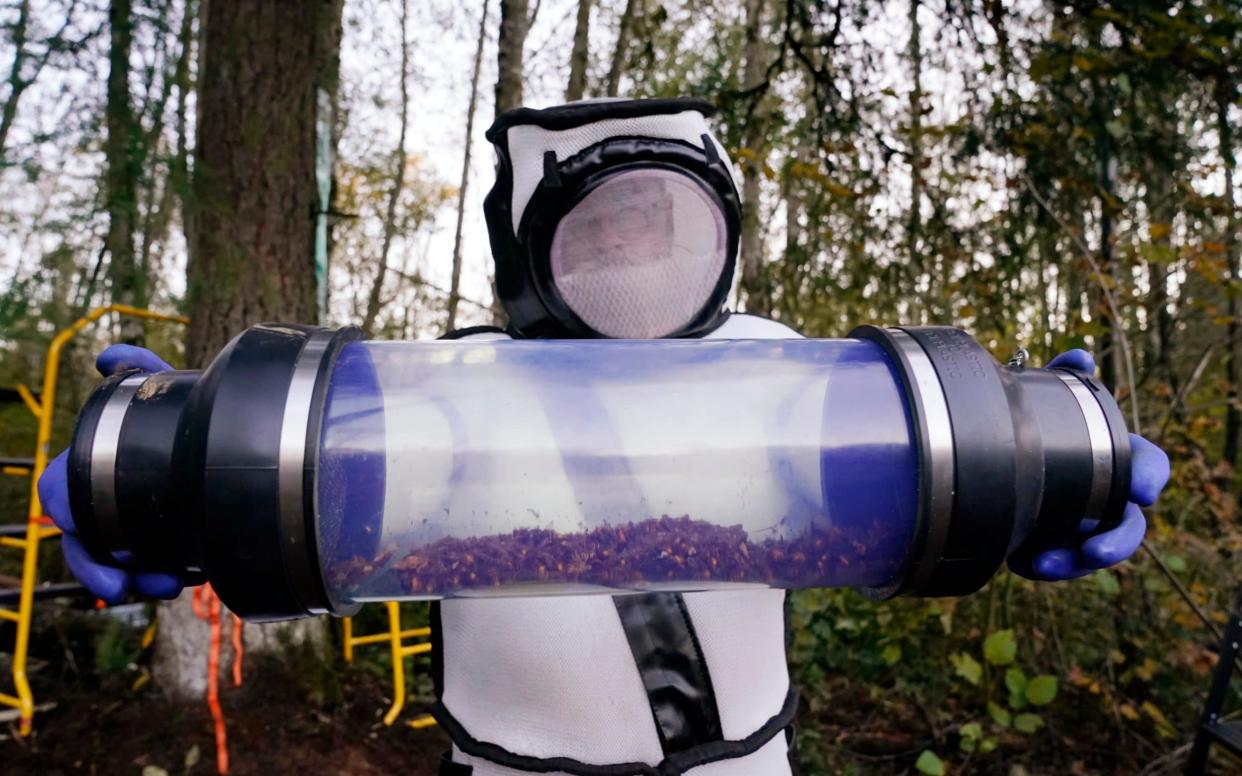'Murder hornet' nest destroyed in the US contained 200 queens

A "murder hornet" nest which was destroyed by entomologists in the north-west of the US contained 200 queens triggering fears that the insect may have already expanded its territory.
Entomologists from the Washington State Department of Agriculture (WSDA) plan to keep tracking and tracing the Asian giant hornets for three years to ensure the threat is eradicated.
Researchers fear, despite their success in tracking down and exterminating a nest, others may have been established elsewhere in the region.
The threat would have been far greater had the nest - just yards away from a children's play set at a home in Blaine - not been discovered.
"It really seems like we got there just in the nick of time,” Sven-Erik Spichiger, an entomologist at the Washington State Department of Agriculture who supervised the destruction.

“There’s no doubt that had we not intervened and destroyed this nest, we would be starting with that number of 200.
“Even though we’re fighting this fight in Washington right now, it literally is for the rest of the country.”
Discovery of the nest was the culmination of months of detective work, using dental floss to attach minute trackers to captured hornets and following them to the nest.
The country, which had been braced for an invasion of the hornets, feared they posed a threat to the local bee population.
Known as the Vespa Mandarinia, the two-inch-long insect has a stinger which can penetrate a beekeeper's suit.
Capable of stinging several times, the hornet's venom can be as toxic as a poisonous snake according to Jun-ichi Takahashi, a researcher at Kyoto Sangyo University in Japan.
It is estimated the hornets kill around 50 people a year in Japan alone.
Destroying the nest entailed covering the cavity with foam and then wrapping cellophane around the trunk. Some hornets were sucked out of the tree with a specially-designed vacuum cleaner.

